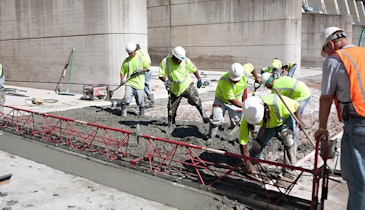Planning has never been my strong suit. In my personal life that’s not such a big deal. As an editor, it’s something I really have to work at.
I’ve been doing this long enough to have the tools, resources and confidence to pull things together last-minute when necessary, but it’s a terrible way to operate. It’s more stressful, and the final product sometimes suffers.
In the publishing world we move from one deadline to the next. It’s easy to get caught up in the cycle, ignore everything but the next deadline and get stuck in triage mode, always focusing on the most immediate task rather than looking three or four issues down the road and eliminating potential problems before they arise.
I’m guessing that scenario sounds familiar to a lot of you. It’s a pretty easy trap for water and wastewater utilities to fall into: You try to tackle your system maintenance but your attention is often diverted to complaints and emergencies and you get stuck doing whatever it takes to get through the day instead of planning and laying the groundwork to make your systems stronger for the future.
As easy as it is to fall into that trap, it can be incredibly difficult to crawl out because you can’t ignore a main break or a sanitary overflow to plan next year’s system upgrades. So you deal with inflow and infiltration issues instead of planning an overall strategy for eliminating them. Or you simply accept high water loss percentages because you don’t have the time or resources to implement a comprehensive leak detection program.
I understand obviously that there are some significant differences between putting a magazine together and operating a municipal utility, but when it comes to planning and getting ahead, there are some parallels.
I have to put the October issue together before I can move on to November. You have to take care of overflows before you can tackle rehab projects. The next deadline is the most important, just like emergencies will always take precedence over maintenance. But when you operate in that mode everything starts to feel like an emergency. It takes the fun out of the work. It takes some of the promise out of tomorrow.
Faced with growing overflow issues and limited capacity for new development, Greenville, South Carolina (profiled in this issue), was forced to look farther down the road. The 1.3-mile Reedy River Basin Sewer Tunnel is the result of that forward thinking. The largest infrastructure project in the community’s history has limited the potential for overflows and ensured capacity for economic development. The utility has improved the long-term viability of the community.
Over the past few months I’ve spent a lot more time planning. I set specific time aside each week to plan and assign stories, regardless of what I have due that week. And a funny thing happened once I got more serious about that: My job started to feel easier. It became less stressful because I had more stories coming. I finally started getting ahead of the game.
Setting aside a few hours every Wednesday morning might not do as much for you as it’s done for me, but you might be surprised by the cumulative effect after a few weeks.
I hope you enjoy this month’s issue.





